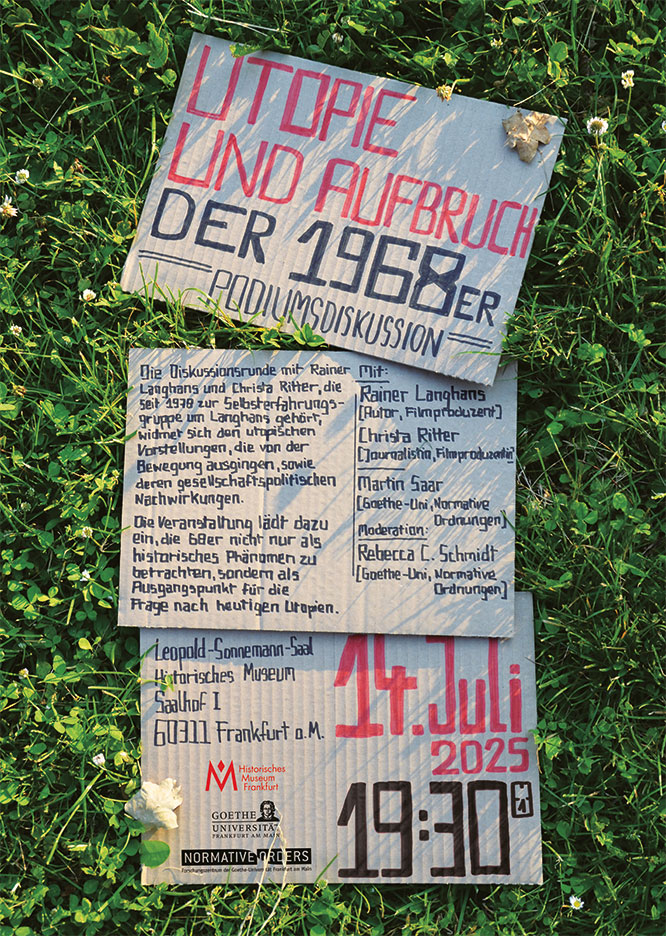Utopie und Aufbruch der 1968er – Was von politischer Rebellion und individueller Selbstbefreiung geblieben ist
Panel discussion
With
Rainer Langhans (author and filmmaker)
Christa Ritter (journalist and filmmaker)
Prof. Dr. Martin Saar (Goethe University, Normative Orders)
Moderator: Rebecca C. Schmidt (Goethe University, Normative Orders)
The so-called “68ers” were not only a political counter-movement to authoritarian structures, outdated norms and a post-war Germany that was perceived as encrusted, but also a time of spiritual awakening. In newly formed communities such as “Commune I”, many sought new forms of love, coexistence and solidarity. Material possessions were questioned, emotional openness and spiritual freedom were rediscovered. The movement was seen as an attempt to break free from the shadow of fascism and instead build a world based on equality, individual freedom and self-determination.
The panel discussion with Rainer Langhans, Christa Ritter, who has been part of Langhans’ self-awareness group since 1978, and the social philosopher Martin Saar is dedicated to these utopian ideas that emanated from the 1968 movement and sheds light on their ideals, impulses, individual and socio-political after-effects. The focus is on the visionary ideas of a just, free and democratic society that sought to dissolve patriarchal power relations. The changes in utopian thinking over the decades are also addressed: To what extent is the utopia of 1968 still relevant today? Which elements have become anchored in the collective memory – and which have failed or been forgotten? And what role do individual freedom and self-determination play today?
In a time of multiple crises, the critical examination of earlier social concepts is gaining new relevance – also in order to better understand and think ahead about current emancipatory movements. The event therefore invites you to consider the ’68ers not only as a historical phenomenon, but also as a starting point for the question of today’s utopias.
The event is open to the public. Admission is free



